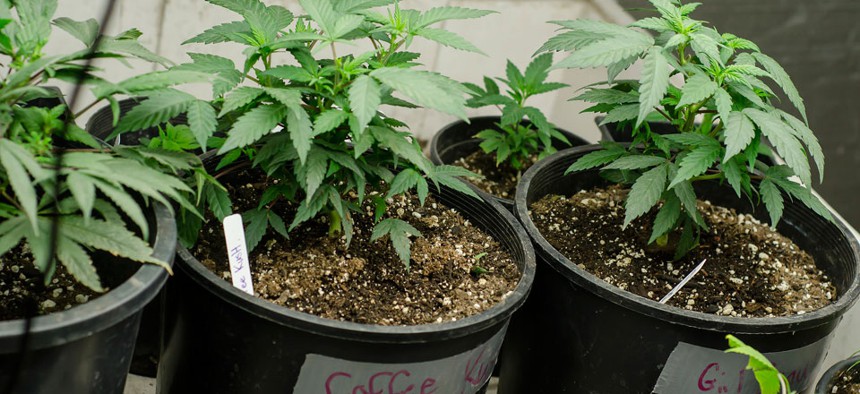However Americans Vote on Marijuana Today, It’s 2016 That Really Matters

Flickr user Brett Levin
Three states have something on the ballot Tuesday.
There are three marijuana ballot initiatives in today’s midterm elections—in Alaska, Oregon and Washington DC—where voters will decide on outright legalization of recreational marijuana. In a fourth ballot, in Florida, voters will vote on a proposed amendment to the state’s constitution, which would legalize medical marijuana.
Initiative 71 in the nation’s capital is the only ballot that looks certain to pass. The remaining three are expected to go down to the wire.
While passage of these ballots could potentially signal growing momentum for the pro-marijuana legalization movement nationally,marijuana advocates are looking to the 2016 general elections as a more accurate barometer of where they stand within the American cultural and political mainstream. The reason being is that more younger and minority voters—groups who polls show support marijuana legalization in higher numbers—vote during quadrennial general elections, while the electorate tends to be older and more conservative in the midterms.
At least five US states—Arizona, California, Maine, Massachusetts and Nevada—will hold ballot initiatives in 2016. And the diverse political makeup of those states, from the conservative battleground of Arizona to the liberal hotbed of Massachusetts, means that success at the ballot box would show that legalization spans the political and ideological spectrum, says Mason Tvert, spokesperson for the Marijuana Policy Project.
“Whatever happens Tuesday, we don’t see a step backwards for the movement going into 2016,” Tvert tells Quartz. “Public opinion is on our side, it is only going in one direction, and that is toward an end to marijuana prohibition in this country.”
The legalization of marijuana for recreational use is supported by 52% of Americans, according to the Pew Research Center. The numbers follow roughly the same trajectory as support for the US same-sex marriage movement in recent years; however, the pro-marijuana legalization movement has not seen the same success.
That could change if the results are positive in both Colorado and Washington State, which in 2012 became the first US states to legalize marijuana for recreational use, and in any state that legalizes on Tuesday, says John Hudak, a fellow at the Brookings Institute and an expert on marijuana policy.
“These experiments provide voters with data, experience and anecdote to show that legalization likely won’t affect their everyday lives,” Hudak tells Quartz. “Once people are accustomed, the conversation amongst policymakers at the state level then shifts to revenue generation and creating the right price point incentives to get behaviors the way you want them to.”
As with all politics, Hudak explains, the race for 2016 will ultimately be won or lost at the local level. “Most of these ballots first gain steam in small communities before getting attention statewide and nationally,” he says. “That grass roots factor is what activists will look to harness for winning hearts and minds in 2016.”
(Image via Flickr user Brett Levin)





